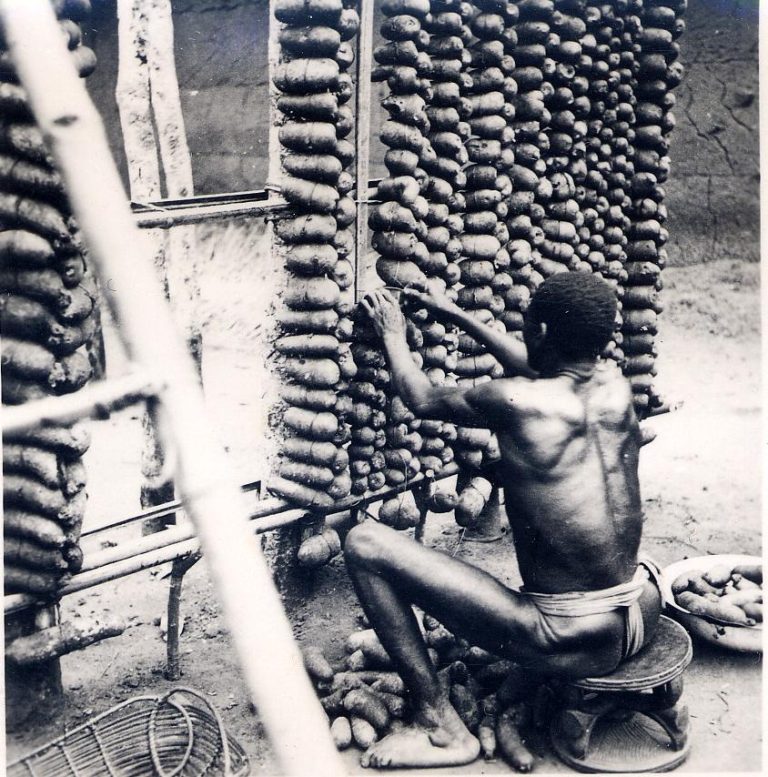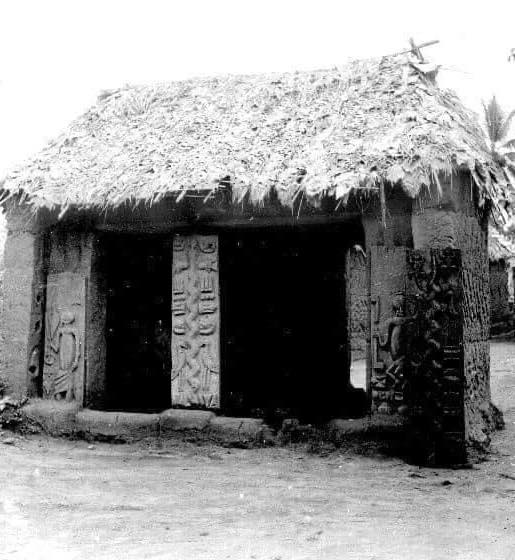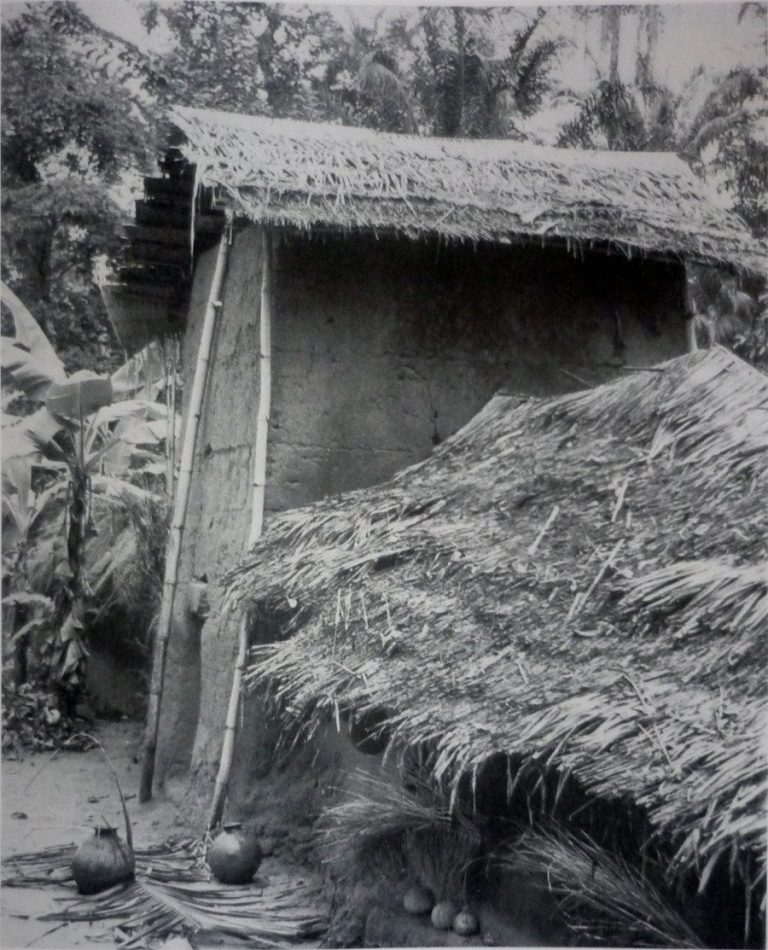The artistic elements of Igbo houses are not merely decorative but serve as a rich tapestry of cultural narratives and social hierarchies.
Symbolism in Carvings and Paintings
Each carving and painting on an Igbo house tells a unique story. Figures, patterns, and objects depicted hold specific meanings, often related to the community’s values and traditions. For example, a figure wielding an axe might symbolize the importance of hunting within the community, a vital source of sustenance and livelihood.
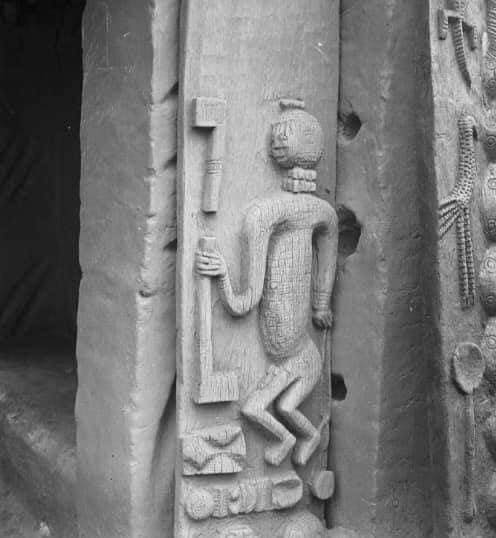
Connection to Spirituality
The carvings might also depict deities from Igbo mythology, serving as a bridge between the physical realm and the spiritual world. These portrayals offered the Igbo people a way to connect with their ancestors and the divine, reminding them of the spiritual forces believed to influence their lives. Some carvings depict scenes from everyday life, offering a window into the traditional occupations and social interactions of the Igbo people.
Use of Color in Wall Paintings
Igbo houses often incorporated vibrant wall paintings to further enrich the visual storytelling. These paintings depicted various aspects of Igbo life, including ceremonies, rituals, and daily activities.
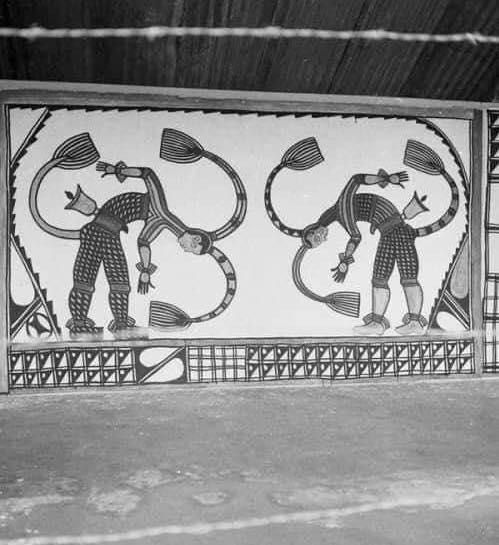
This particular painting depicts figures in masquerade costumes, hinting at the role of masquerades in Igbo ceremonies and rituals. Masquerades often played a significant role in Igbo society, acting as a bridge between the physical and spiritual realms, enforcing social norms, and offering entertainment during festivals. By studying these wall paintings, we gain valuable insights into the diverse cultural practices of the Igbo people.
Social Status and Artistic Expression
The intricacy and detail of the decorations on an Igbo house could reflect the social standing of the homeowner. A more elaborate display with intricate carvings and vibrant paintings might signify a person of high rank within the community, perhaps a wealthy merchant or a respected village leader. Conversely, a simpler design could represent a family of more modest means. This use of artistic expression served as a subtle yet effective way to communicate social hierarchy within Igbo society.
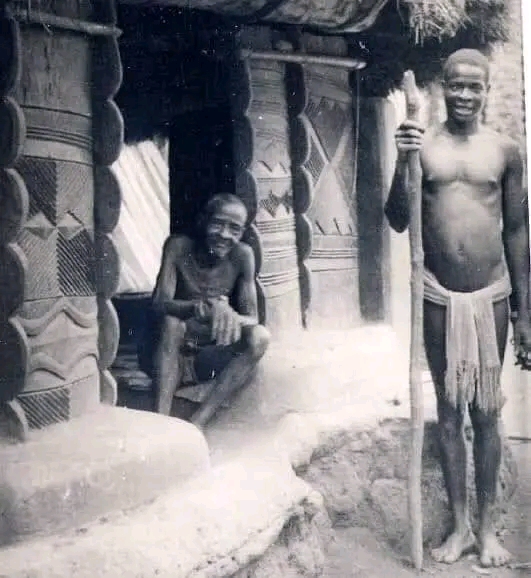
By exploring the traditional architecture of the Igbo people, we gain a deeper appreciation for their cultural heritage and the ways in which they have adapted to modern influences while striving to preserve their unique identity.
What do you think about the traditional Igbo houses and their cultural significance? Share your thoughts and any personal experiences in the comments below!
Explore Further
To explore this topic in more depth, we recommend these books reviewed on our website. Each one offers unique insights into Igbo culture and architecture.
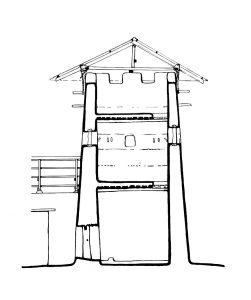 Recommended Books
Recommended BooksAuthor: Z.R. DmochowskiPublisher: Ethnographica; National Commission for Museums and MonumentsPublication Date: 1990Format: HardcoverPages: 152ISBN-10: 0905788281ISBN-13: 978-0905788289Language: English Overview “An Introduction to Nigerian Traditional Architecture: South-Eastern Nigeria: The Igbo-speaking People” by Z.R. Dmochowski is a comprehensive study that explores the traditional architectural styles and practices of the Igbo people in South-Eastern Nigeria. This book is part […]
 Recommended Books
Recommended BooksTitle: Igbo Arts: Community and CosmosAuthors: Herbert M. Cole, Chike G. AniakorForeword: Chinua AchebePublisher: Univ of California Museum of Cultural HistoryPublication Date: January 1, 1984Format: Paperback, 238 pagesISBN: 978-0930741013 Overview “Igbo Arts: Community and Cosmos” by Herbert M. Cole and Chike G. Aniakor is a comprehensive examination of Igbo art, culture, and community life. With […]
Discover more from Igbo Archives
Subscribe to get the latest posts sent to your email.


